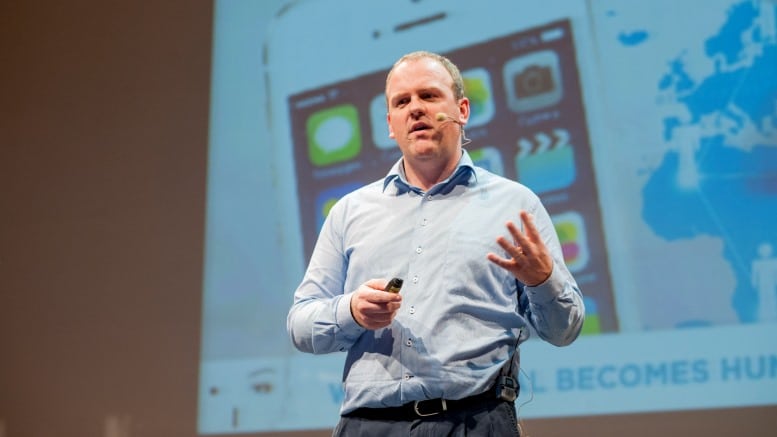Digital expert Steven van Belleghem, pictured, looks at how artificial intelligence is set to change the sector
It can’t be denied that if a piece of technology really works, humans will always have more faith in it than they will in their fellow humans. A good example is a satellite navigation system in a car – if yours tells you to turn left, but your passenger tells you to carry straight on, who do you believe? 10 years ago it would have been the human passenger, as sat nav technology was still unreliable, but now that the technology is so advanced, we will believe the machine over the human.
It’s therefore become the norm that as soon as technology becomes perfect, we have more faith and more trust in its abilities over those of people. So how does this impact on financial services?
The rise of the machines
In the world of private banking and wealth management, the situation at the moment is that clients still think that computers aren’t necessary, and humans are key to the process. But I believe that this is set to change – and very soon. Artificial intelligence, in the guise of robo-advisers, is about to be good enough, and in fact better than, human financial advisers.
The question is, will your clients trust machines? The answer is that they really should. Financial management is all about predicting markets, and artificial intelligence is all about predictions. The two are a perfect match.
Making an investment decision is concerned with finding out all the relevant information and then presenting clients with a range of options. Where robo-advisers will trump human advisers is that they will have access to information that is real-time and better than their human counterparts could ever analyse. And as financial decisions are all about analysing data, people are going to trust the advisor who can present them with a best range of information to consider.
A human touch
But while you might be thinking that this means the role of humans in the financial sector will soon be redundant, I can emphatically say that it won’t be. Humans will still have a massive role to play in financial services, and in fact it’s this human element that will make or break the success of a company.
Where humans trump machines is, of course, on an emotional level. What humans will be needed for is the storytelling and empathy that’s involved in financial services. You will need a person to explain the robo-adviser’s decision, and put this into terms that your client will understand. When you think about it, many financial decisions are in fact based upon emotional events, such as the birth of a child, the death of a parent or a divorce. You therefore need a human to acknowledge this emotional impact, working in tandem with the superior information that a robo-adviser can provide.
The crucial step for financial service companies is therefore to consider the role of humans in a world of AI. If a company doesn’t have AI it will definitely lose, but it will be AI plus humans that will make a difference. The technology will be the same across the sector, so it will be those with the best human advisers who will emerge as the winners.
It’s therefore vital that you start thinking about an AI-led world and how your company is going to adapt to this. One of the skills that’s going to become even more important is this new model is leadership, as you’re going to need to give your people the example and the freedom to colour outside of the lines in favour of the customer, allowing them to offer an amazing personal experience that your clients won’t forget and that will ensure loyalty to your company.
Prof Steven Van Belleghem the author of When Digital Becomes Human, published by Kogan Page, priced £19.99. stevenvanbelleghem.com


Be the first to comment on "Robo-advisers: how tech will shape the future of financial services"